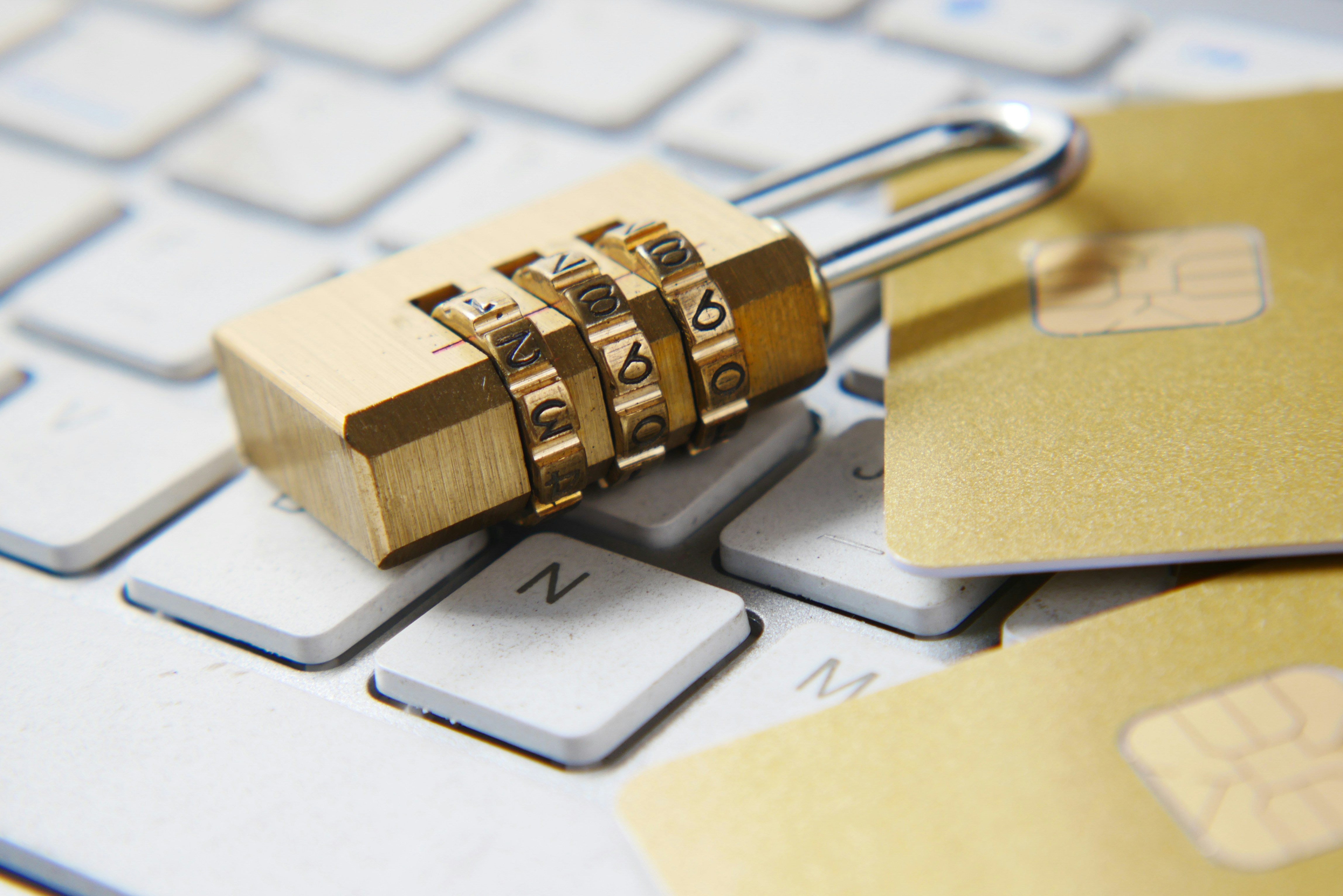What is Zero-Knowledge Encryption? A Non-Technical Explanation

Imagine you have a safety deposit box at a bank, but with a twist: even the bank employees can't open it. They can store it, protect it, and give you access to it, but they have absolutely no idea what's inside. Even if they wanted to peek, even if the government demanded access, even if hackers broke into the bank's systems, your box would remain completely private because only you have the key that can open it.
This is essentially how zero-knowledge encryption works for your digital information, and understanding this concept is becoming crucial as more of our personal lives move online. The growing concern about data privacy isn't just for the tech-savvy—it's becoming a fundamental issue for anyone who stores personal information digitally.
The Traditional Security Model
To understand why zero-knowledge encryption matters, we need to first understand how most online services currently handle your data. When you store photos on a typical cloud service, send emails, or save documents online, here's what usually happens: your information travels to the company's servers, where it gets encrypted and stored. The company holds the encryption keys, which means they can unlock and read your information whenever they need to.
This traditional model requires trust. You're trusting that the company will only access your data for legitimate purposes, that their employees won't misuse their access, that hackers won't breach their systems and steal both your data and the keys to decrypt it, and that the company will resist pressure from governments or other authorities to hand over your information.
For many years, this trust-based model worked reasonably well. Most reputable companies tried to protect customer data, and the average person didn't store highly sensitive information online. But several factors have changed this equation dramatically.
First, we're storing much more sensitive information online than ever before. Personal photos, financial documents, medical records, family communications, and business information all live in cloud services. Second, data breaches have become increasingly common and sophisticated. Third, government surveillance programs have expanded significantly, and companies are often required to provide access to customer data.
The fundamental vulnerability in traditional approaches is that the company providing the service can always access your data. Even if they promise not to, even if they have strong security policies, the technical capability exists. And where technical capability exists, it can potentially be misused.
What Zero-Knowledge Actually Means
Zero-knowledge encryption flips this model completely. Instead of trusting the service provider to protect your data after it reaches their servers, zero-knowledge systems encrypt your information on your device before it ever leaves your control. The service provider receives only encrypted data that they cannot decrypt, even if they wanted to.
Think of it like this: instead of handing your diary to a friend and asking them to keep it safe, you lock your diary in an unbreakable box and then hand the locked box to your friend. Your friend can store the box, protect it from theft, and give it back to you when you need it, but they can never read what's inside because only you have the key.
In technical terms, the encryption and decryption happen on your devices (your phone, computer, tablet) using keys that only you control. The service provider never sees your encryption keys, never sees your unencrypted data, and therefore has literally no technical ability to access your information.
This means that when you store a family photo using zero-knowledge encryption, the cloud service receives something like "X7@kL9#mP2$qR8*" instead of your actual photo. Even if hackers break into the service's computers, all they'll find is meaningless encrypted data that would take centuries to decrypt without your keys.
Real-World Benefits for Personal Information
The protection against data breaches is perhaps the most immediately obvious benefit. When companies get hacked—and large companies get hacked regularly—zero-knowledge encryption means your personal information remains secure even when the company's security fails. The hackers might steal your encrypted data, but without your encryption keys, it's useless to them.
Privacy from service providers themselves becomes increasingly important as companies collect more data and face more pressure to monetize customer information. With zero-knowledge encryption, the company providing the service literally cannot access your information, even for their own analytics or advertising purposes.
Government and legal protection considerations are complex but significant. While zero-knowledge encryption doesn't provide absolute legal protection—governments can still compel you personally to provide access—it does mean that service providers cannot be forced to turn over your decrypted data because they don't have the ability to decrypt it.
Perhaps most importantly, zero-knowledge encryption provides peace of mind for sensitive information storage. When you know that only you can access your personal information, you're more likely to use digital tools for important tasks like financial planning, medical record keeping, and family communication.
The Trade-offs and Considerations
Zero-knowledge encryption isn't perfect, and it's important to understand the trade-offs involved. The most significant consideration is account recovery. If you forget your password or lose access to your encryption keys, the service provider cannot help you recover your data—they don't have access to it either. This means you need to be more careful about password management and backup procedures.
Customer support capabilities are also limited. When you contact customer service for help, they cannot look at your data to understand your problem or provide specific assistance. Support interactions become more generic and may require more back-and-forth communication.
Performance considerations vary depending on implementation, but encryption and decryption processes can sometimes slow down access to your information, especially for large files or complex searches within encrypted data.
It's also worth noting that zero-knowledge encryption isn't necessary for all types of information. Your grocery list probably doesn't need the same level of protection as your tax returns. Understanding when zero-knowledge encryption provides meaningful benefits versus when simpler security measures are sufficient helps you make informed decisions about different types of data.
Evaluating Zero-Knowledge Claims
Unfortunately, "zero-knowledge" has become a marketing buzzword, and not all services that claim to offer zero-knowledge encryption actually deliver true zero-knowledge protection. Here are key questions to ask when evaluating these claims:
Can the service provider reset your password without losing access to your data? If yes, it's probably not true zero-knowledge encryption, because password reset typically requires the service to have some way to access your encryption keys.
Does the service offer features like server-side search or automatic content analysis? These features typically require the service to have access to your unencrypted data, which contradicts zero-knowledge principles.
Is the service's implementation open source or independently audited? True zero-knowledge encryption should be verifiable by security experts, not just claimed by marketing materials.
What happens if you forget your password? True zero-knowledge services will tell you upfront that they cannot recover your data if you lose access to your encryption keys.
Red flags include vague explanations of how their encryption works, promises of both zero-knowledge encryption and convenient features that would require server access to your data, and refusal to submit to independent security audits.
Making Informed Decisions
The goal isn't to use zero-knowledge encryption for everything—it's to understand when the benefits justify the trade-offs. For highly sensitive information like financial records, medical information, or personal communications, zero-knowledge encryption provides significant peace of mind. For less sensitive information like public photos or casual notes, the convenience of traditional cloud services might outweigh the privacy benefits.
Consider your personal threat model: what types of privacy violations are you most concerned about? If you're primarily worried about hackers accessing your data, zero-knowledge encryption provides excellent protection. If you're more concerned about convenience and ease of use, traditional encrypted cloud services might be a better fit.
Think about your technical comfort level and backup habits. Zero-knowledge encryption requires more personal responsibility for password management and data recovery. If you frequently forget passwords or don't maintain good backup practices, the risk of locking yourself out of your own data might outweigh the privacy benefits.
The empowerment of understanding your security options extends beyond just choosing services. When you understand how zero-knowledge encryption works, you're better equipped to make informed decisions about all aspects of your digital privacy. You can evaluate privacy policies more critically, ask better questions about data handling practices, and make choices based on your actual needs rather than marketing claims.
Zero-knowledge encryption represents an important evolution in online privacy, but it's not a magic solution to all privacy concerns. It's a powerful tool that, when properly understood and appropriately applied, can provide significant protection for your most sensitive personal information. The key is understanding how it works, when it's beneficial, and what trade-offs are involved, so you can make informed decisions about protecting your digital privacy.
Private AI for Life
Live your best life with Thinkspan: the all-in-one smart solution for organizing, securing, and accessing personal information. With Thinkspan, your life's most important information stays protected and accessible.
Stay Informed
Be the first to know about feature releases and get tips for living your best life by signing up for our newsletter.








